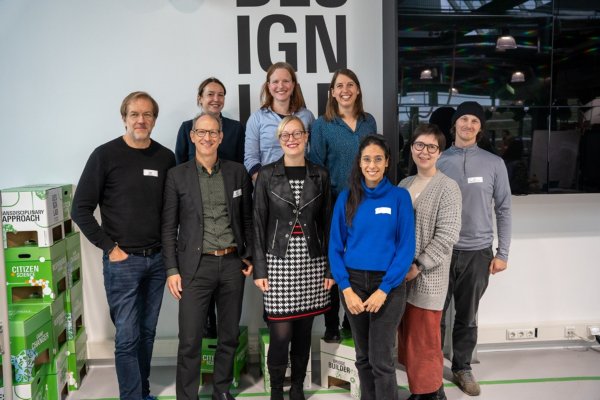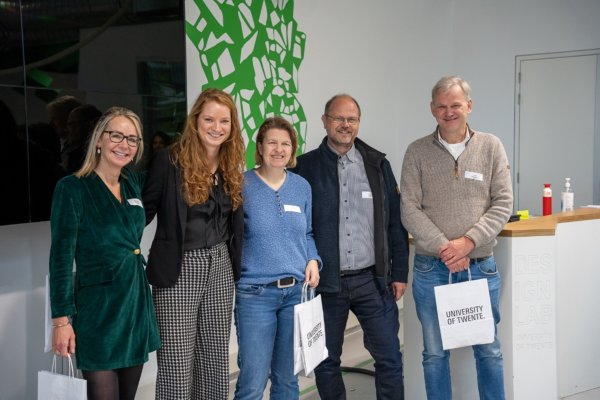AI in education Hackathon November 2023: Feedback for high-quality educational video’s and virtual study coaches
Cindy Poortman, University of Twente
From 8 November to 10 November, the AI in Education Hackathon was organized at the University of Twente. This was initiated by the AI and Data in Education (AID-E) network and made possible by 4TU.CEE and Research Institute DSI, organized by Pro-U in collaboration with Pre-U, the BMS Faculty, and the EEMCS faculty. After last year’s successful Hackaton with 7 teams, this year almost double the number of teams from different educational institutions and organizations, participated enthusiastically.
A program with a broad perspective on AI in education
After the opening introduction by Kim Schildkamp (UT, ELAN), Talitha Visser (UT, ELAN) presented last year’s winning team’s 3rd grade Chemistry balancing (reaction) equations proof of concept for a digital feedback tool. Then Maurice van Keulen (UT, EEMCS) warned for the threats to AI: students, teachers and decision-makers need support for using AI in a responsible way.
On the second and third day, teams could work on their proof of concept supported by ‘jedi’s’, alternated with further inspiration sessions. Bertine van Deyzen (SURF) talked about demystifying and defining AI and gave application examples (in education), concluding that Education will change by the use of AI, for example in terms of assessment, personalization and the role of teachers.
NOLAI director Inge Molenaar introduced the national Education lab AI, and talked about the 6 levels of automation model and upscaling NOLAI. It is hard for education to address the balancing act of risks and opportunities for AI in education, and NOLAI aims to support schools in this by co-creating with schools to help improve (primary and secondary) education.
Projects presented
Several application projects and tools were presented, for example in the areas of teacher dashboards for learning process feedback and tools to support self-regulation. What can be challenging in practice, is that the technological solution might not be the biggest issue, but that teachers need to trust and have enough insight into the information that the system is using. Also it is really important to be clear about the pedagogical/didactical change you would like to achieve.
Only early birds could still do some work on Friday, after which the presentations for the jury took place. Themes varied from formative feedback on bachelor theses to padel training. The Jury consisted of Tjeerd Hans Terpstra - CITO, Bernard Veldkamp - UT, Bertine van Deyzen - SURF, Esther Ventura-Medina - 4TU.CEE and TUE, JaapJan Vroom - MBO-raad and NPuls, and Bram Enning - HS Leiden and NPuls.
Award winners continue further exploration with experts
In two parallel sessions, two winners were chosen: the University of Bremen-UT team with ‘Automated AI-based Feedback on Educational Videos for Teachers and Learners’, and the Saxion University of Applied Sciences team with their Virtual study coach named sAxI.
The Educational video team convinced the jury that their idea would save time for educational video reviewers (e.g., teacher trainers) and would ensure higher quality video’s through an iterative feedback method.
Saxion used generative AI in a simple and elegant manner and demonstrated clearly what was necessary to bring their project to completion to support learning for students. Both proofs of concept were awarded the prize of further exploration with experts to try to make them a reality.
Left/Top: Team Bremen-UT, Right/Bottom: Team Saxion





